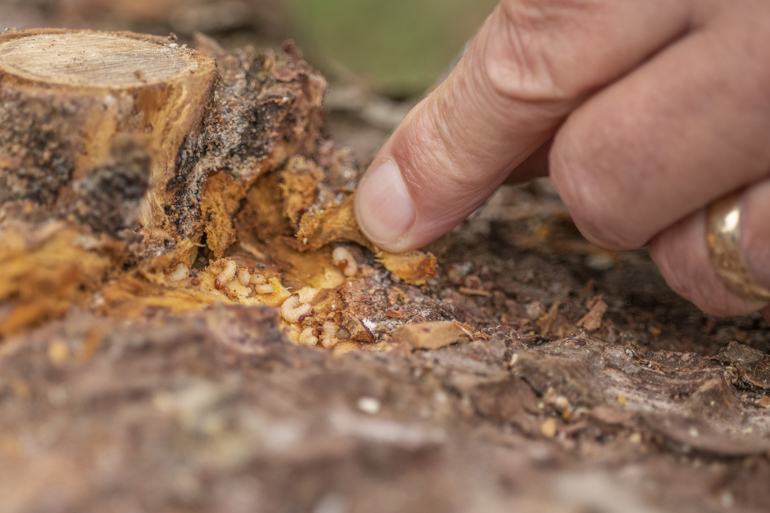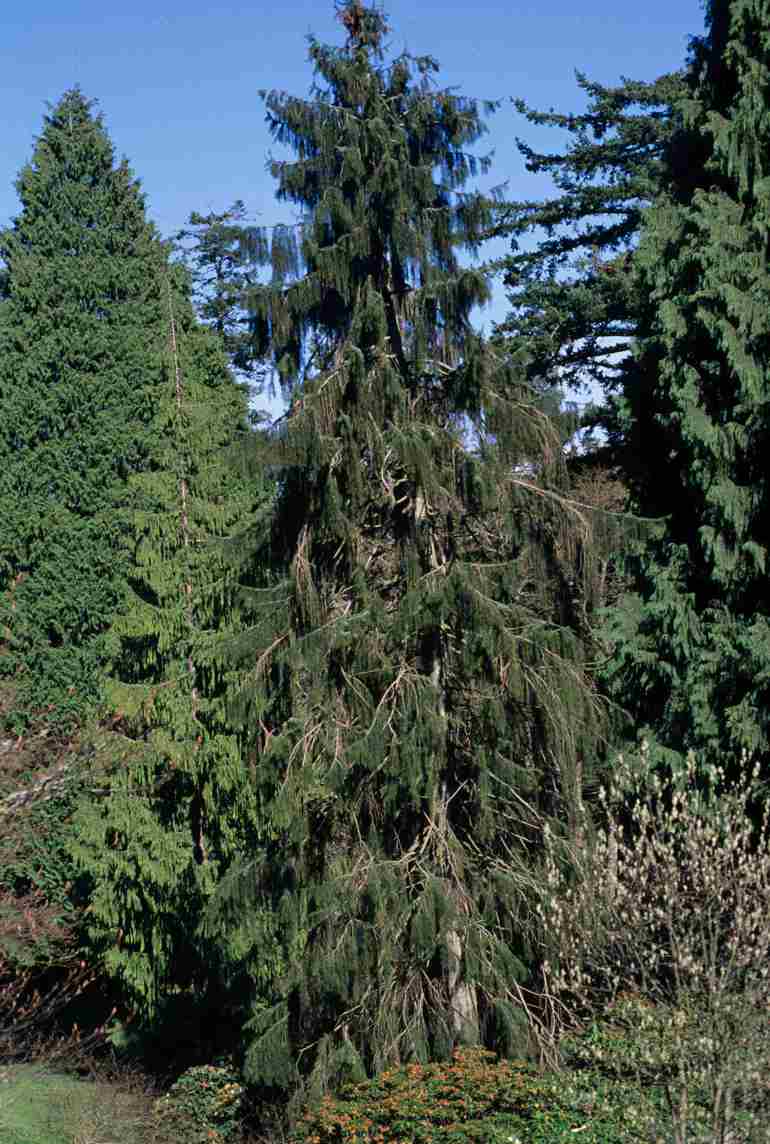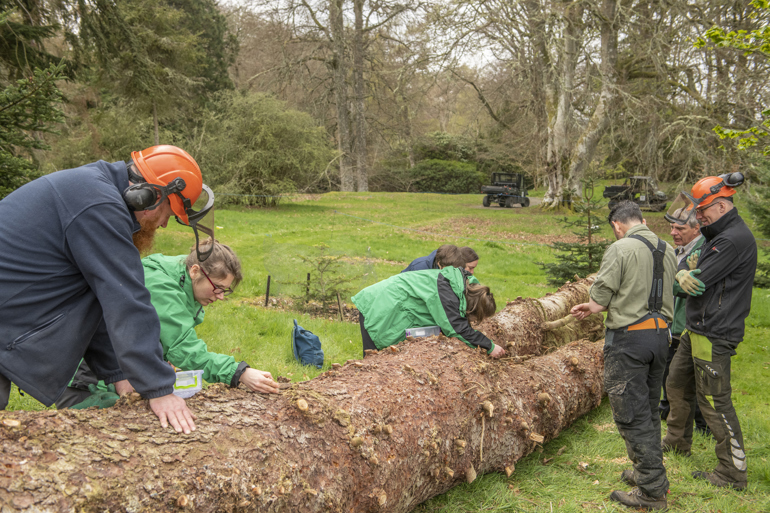Plant health experts have gathered at Dawyck Botanic Garden, in the Scottish Borders, to witness the dismantling of a century-old Brewer's weeping spruce (Picea breweriana), the latest casualty of Britain-wide infestations of the virulent pest, the great spruce bark beetle (Dendroctonus micans).
While infestations are increasingly common and detrimental to both private collections and the timber industry, there is some hope for a fight back against this particular predator, as should be seen at Dawyck, part of the Royal Botanic Garden Edinburgh (RBGE). By examining sections of the once majestic conifer at the internationally renowned arboretum, the specialists aim to gain clearer insight on the potential of saving trees. Their secret weapon lies in the introduction of the tiny Rhizophagus grandis beetle, which relies on D. micans as its only food source.
Knowledge of where and when the D. micans pest is moving, coordinated with controlled release of Rhizophagus grandis beetles could be an efficient and sustainable approach to an increasing problem. That’s why this week’s meeting is a key part of a strategy being formulated by RBGE Science and Horticulture teams, with partners at Forest Research and Scottish Forestry, all of whom are working with other likeminded organisations around Britain to implement safe biological controls.
Dr Matt Elliot, a plant health and biosecurity scientist at RBGE explained: “The impact of plant pests and diseases on RBGE sites and the wider environment has become one of the most pressing areas of our work. By coining the phrase D-Day, where D equals Dendroctonus, in relation to the removal of this particular tree, we are addressing a situation which, we believe, could be a turning point in our approach to one significant plant health issue.
“The Dendroctonus micans beetle tunnels into the bark of living trees to lay its eggs. The larvae feed on the living woody material, forming cavities which weaken the tree and can eventually kill it. The species was known to be in the wider environment around Dawyck, so there was a strong chance it would arrive in the Garden and some form of action would be required. Thanks to 30 years of work by Forest Research, we are now in a much stronger position with the development of an effective biological control, in the form of Rhizophagus grandis. This species has an extraordinary ability to locate its prey without posing any threat to trees or native beetles. While the process won’t eradicate the pest, it will keep numbers to a level where damage is reduced.”

Image: Larvae feeding on the living woody material
Since identification of the D. micans pest at Dawyck in late 2020, the Garden’s Picea collection has become further infected. Significantly, of 329 Picea trees, 246 are of known wild origin, 95 are endangered and 14 are classed as vulnerable in their natural habitats. The exceptionally dry summer of 2022 caused further stress on trees already weakened by the infestation and the need to find a resolution has intensified.

Image: Picea breweriana
Garden Curator Graham Stewart concluded: “Dawyck has a particularly fine collection of Picea breweriana, many dating back to the former estate owner and leading academic F.R.S Balfour who observed them in the Pacific Northwest of America and had seedlings shipped back to Scotland and planted out in 1912.
“Now, we live in a time of rapidly increasing threats to plant life. We need to search for answers, not only for the future of our own collections but for other gardens, estates and the wider countryside. Working with Forest Research and releasing just 25 Rhizophagus grandis in key locations allows us to monitor other trees, with the ambition that we can avoid the need for any future Dendroctonus micans related removals.”

Image: The team examine the felled tree, Picea breweriana.

